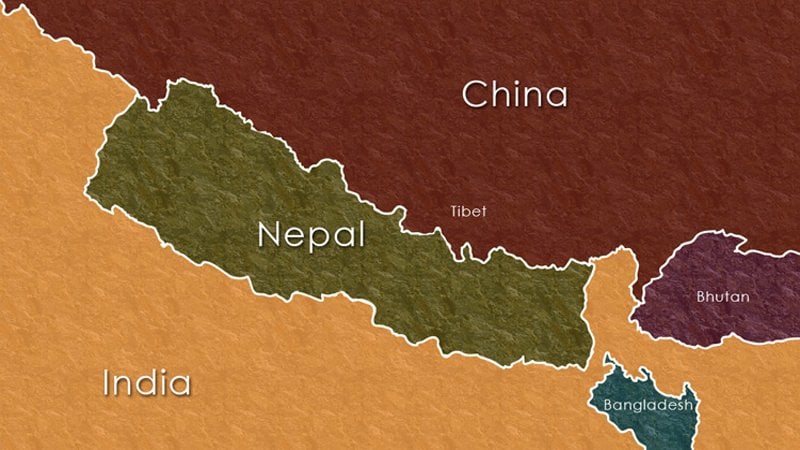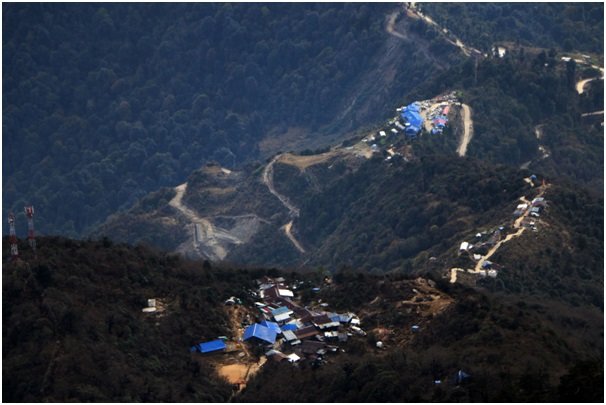Nepal's Geopolitics: Instability and Dominance of External Powers

Nepal, a landlocked country nestled in the Himalayas, has a complex geopolitical landscape that has historically resulted in political instability and a struggle to maintain sovereignty amidst the influence of external powers. Its strategic location between India and China makes it a crucial player in the regional power dynamics, often subject to the interests of these two major neighbors. This article delves into the factors contributing to Nepal's geopolitical challenges and suggests a foreign policy approach that can help balance geopolitics and reduce the dominance of external powers.
Geopolitical Factors Resulting in Instability
1. Proximity to India and China: Nepal's geographic location places it in a delicate position, being sandwiched between two major powers with competing interests. Both India and China view Nepal as part of their respective spheres of influence and seek to assert their dominance, leading to tensions and political complexities.
2. Historical Ties with India: Nepal and India share deep-rooted historical, cultural, and economic ties. However, these ties have also been a source of contention, as some segments of the Nepalese population view India's influence as overly intrusive and seek to safeguard national sovereignty.
3. China's Increasing Presence: In recent years, China has significantly increased its involvement in Nepal through infrastructure development, trade, and investment projects. While this has the potential for economic growth, it also raises concerns about Nepal's overreliance on China and the risk of falling into a debt trap.
4. Internal Political Fractures: Political divisions within Nepal have further complicated its geopolitical situation. Frequent changes in government and unstable coalition politics have made it difficult to pursue a consistent foreign policy approach.
5. Security Challenges: Nepal's porous borders, particularly with India, have made it vulnerable to security threats, including cross-border crime, terrorism, and the illegal movement of people and goods. The struggle for dominance between India and China has resulted in Nepal being caught in a geopolitical tug-of-war. Both countries often use economic assistance, investment, and political influence to gain a favorable position in Nepal, which can undermine the nation's decision-making autonomy. The dominance of external powers has hindered Nepal's ability to formulate and implement policies that serve its national interest, contributing to instability and uncertainty in the region.
To balance geopolitics and reduce the dominance of external powers, Nepal must adopt a pragmatic and assertive foreign policy approach. Here are some key strategies to consider:
1. Non-alignment and Equidistance: Nepal should reaffirm its commitment to non-alignment, avoiding exclusive alliances with any particular country. By maintaining equidistance with India and China, Nepal can protect its sovereignty and have the flexibility to engage in partnerships that serve its own interests.
2. Strengthening Regional Cooperation: Nepal can play an active role in regional forums like the South Asian Association for Regional Cooperation (SAARC) and the Bay of Bengal Initiative for Multi-Sectoral Technical and Economic Cooperation (BIMSTEC). Engaging with neighboring countries on issues of mutual concern can foster cooperation and reduce tensions.
3. Economic Diversification: To reduce dependency on any single external power, Nepal must diversify its trade and investment partnerships. This includes engaging with countries beyond India and China and seeking economic opportunities in other regions.
4. Infrastructure and Connectivity: Investing in its own infrastructure projects can help Nepal leverage its geographic advantage and become a vital link between India and China. By developing robust connectivity within the country, Nepal can attract investments from multiple sources and enhance its geopolitical significance.
5. Strengthening Diplomacy: Nepal's diplomacy should focus on skillfully balancing its relationships with both India and China, while actively seeking support from other international actors. Engaging in strategic dialogues and negotiations can help Nepal assert its interests on the global stage.
Nepal's geopolitical situation is inherently complex due to its location and the interests of neighboring powers. To tackle the challenges of instability and dominance by external powers, Nepal must pursue a balanced and pragmatic foreign policy. By adopting a non-aligned approach, fostering regional cooperation, diversifying its economic partnerships, and strengthening diplomacy, Nepal can better safeguard its sovereignty and pursue its national interests while contributing to regional stability. Only through such a proactive foreign policy can Nepal find its place as a confident and influential player in the dynamic geopolitical landscape of South Asia.






Leave Comment